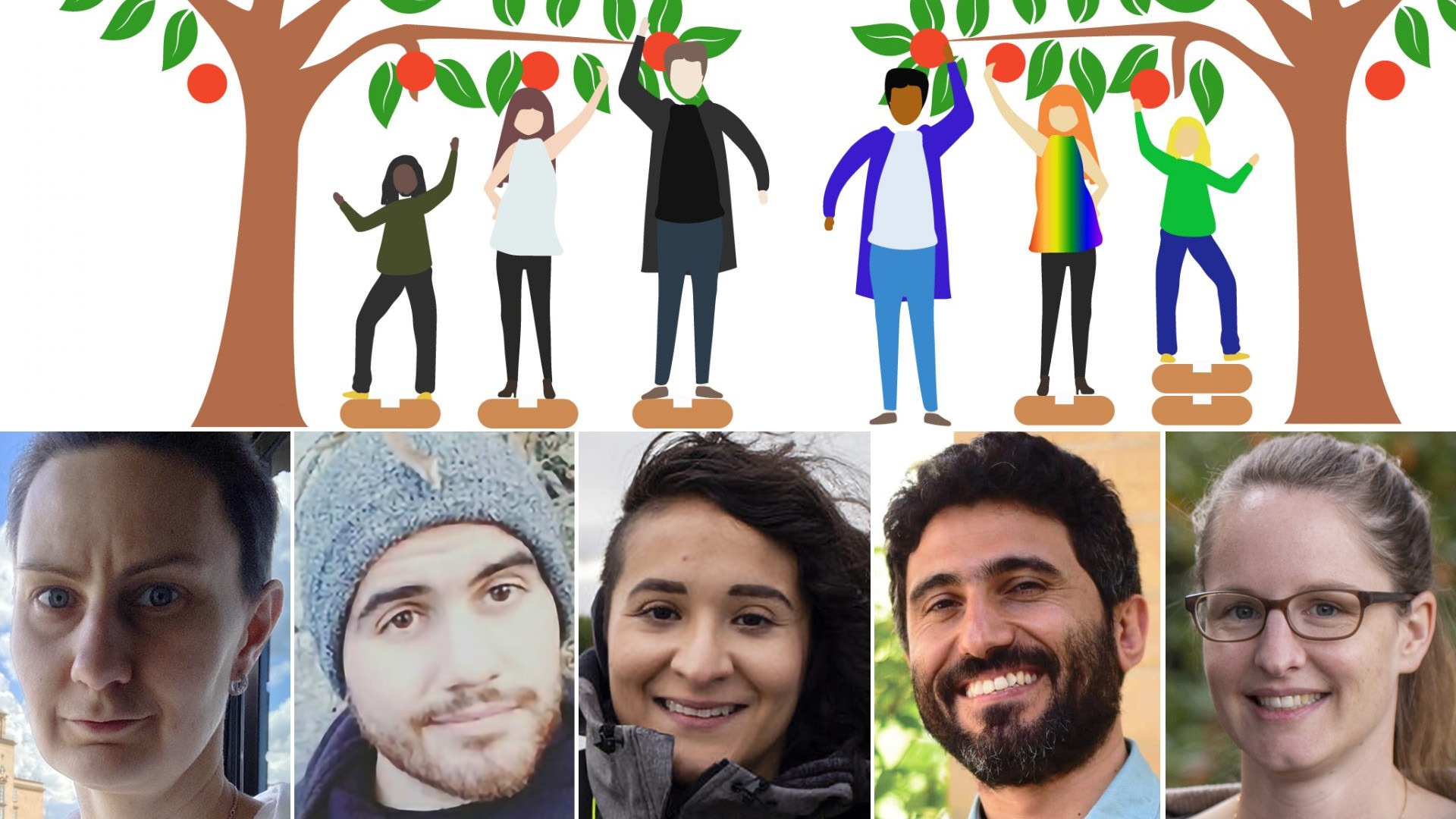SciLifeLab diversity committee members speak out for a more inclusive academia
Four SciLifeLab Fellows and one PhD student – all members of the SciLifeLab diversity, equity and inclusion committee – share their personal stories and insights on how to further well-being and inclusiveness in academia.
In the essay, which is a call for a more inclusive academia, the authors write that “A shift in academic culture and climate is needed to appreciate diversity and harness the power of inclusion.” The essay, named Uniting diversity to create a more inclusive academic environment, was published in the Journal of Cell Science.
The vision of the committee, which was formed in 2020, is to create a safe platform where all people at SciLifeLab can bring up topics related to diversity and inclusion; remark the vital contribution of diversity to science; and to discuss experiences and struggles in the scientific life.
Insight 1 – wonders of life and life sciences
SciLifeLab fellow Anniina Vihervaara shares her experience of coming out as gay in academia. To her, inclusiveness and having allies in society and the work-place envirnonment was hugely important. In opening up about her own life made others open up as well and shared both their hardships and joys.
“We all are wonderful versions of ourselves, regardless of how we wish to be defined, or undefined, regardless and because of our cultural backgrounds and inherited traits. In the lab, we study how cells gain their identity during differentiation, and how cells can remember experienced conditions (Vihervaara et al., 2021). Like our cells, we establish our identities via experiences, through people we meet and how we are met.”
Insight 2 – representation matters
PhD student Alejandro Rodríguez-Gijón writes about the importance of scientific references in our work, and of role models in our lives.
“Big names from history like Alan Turing or Sally K. Ride can serve as life inspiration for many: although they may feel distant, we can relate to these figures and understand that, regardless of our sexuality or gender identity, we can succeed and shine in any scientific field. However, I feel the need to highlight the crucial role that lesser known scientists have on science. Models like Izzy Jayasinghe or Jan J. Eldridge and the members of different EDI organizations play a vital role in social media outreach and undergraduate education.”
Insight 3 – understand and foster diversity
Sarahi L. Garcia, also a fellow at SciLifeLab, speaks of her journey from an undereducated past in Mexico to a scientific career where she’s lived in three different countries. As a simile, she compares working with the great diversity in microbial ecology to life in academia.
“When we try to grow these bacteria in the lab, under rich media (such as LB medium) and in isolation, most of these bacteria will fail to grow and multiply. Our academic culture very often resembles LB medium: it has all the nutrients that one can think bacteria need to grow, but it fails at fostering and nurturing the great diversity of abundant and important microorganisms in the environment.”
Insight 4 – be kind to each other
SciLifeLab fellow Erdinc Sezgin shares his experiences on what makes life worthwhile and matter.
“One of the major questions in cell biology is why do we need so many different lipids in our cells? We now know that the membrane is bigger than the sum of the individual components, because of the collective behaviour of all these different lipids. I see the academic world as a big membrane. A lot of us, slightly different from each other, but our true potential is when we are together.”
Insight 5 – we are stronger together
SciLifeLab fellow and group leader Lucie Delemotte describes her insights on the critical importance of creating supportive environments to turn intimidating tasks into opportunities to learn, both for ourselves and the world.
“In an inspiring way, proteins working in a cell also do not work alone, they take part in large networks, get help from one another and unsuspected phenomena can emerge from individual molecules coming together.
I have been lucky to be surrounded by many others along my academic journey, and their support has meant a lot, especially in the face of rejection of grants, papers and ideas! I like to try and pass on what I was lucky to receive. I would also like to get better at supporting people with even more diverse backgrounds. I am convinced we are missing out on essential scientific and personal discoveries when people from many walks of lives are excluded from our labs. That is my wish for myself and my lab.”
Read the full essay here





